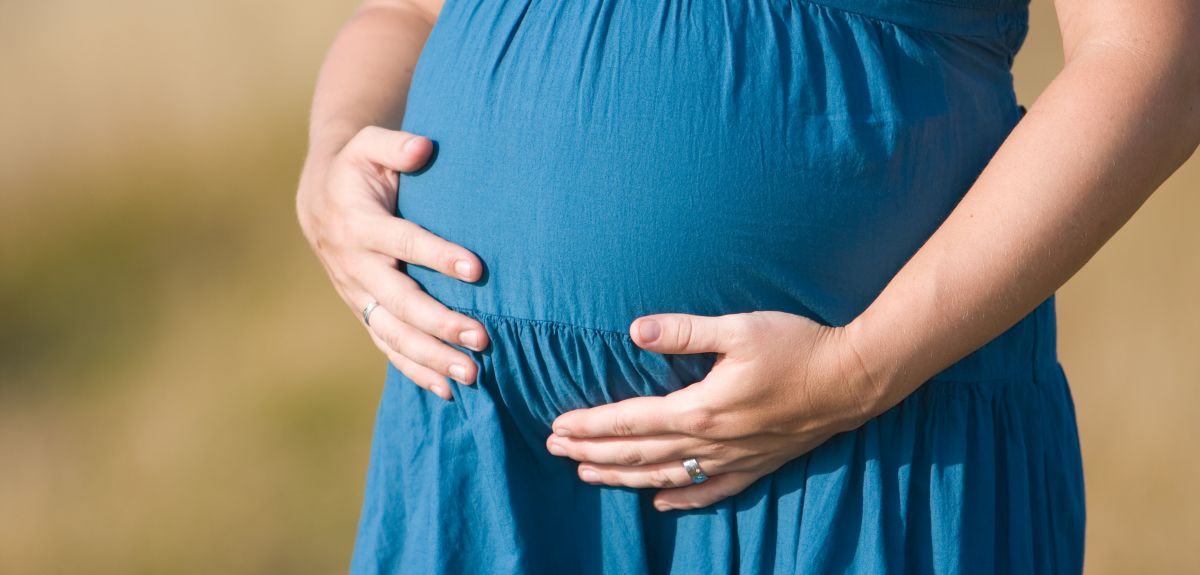
Image credit: Shutterstock
Study highlights heart disease risk for pregnant women
The latest annual report into maternal deaths, produced by Oxford University researchers, highlights the risk of heart disease among pregnant women.
Pregnant women and those who have recently given birth need to be aware of the symptoms of heart disease, says a major new report from researchers at the University of Oxford.
The latest Confidential Enquiry into Maternal Deaths from the national collaborative programme studying maternal and infant deaths, MBRRACE-UK, commissioned by the Healthcare Quality Improvement Partnership shows that in 2012-14, 8.5 women per 100,000* died during pregnancy or shortly after giving birth. The report, ‘Saving Lives, Improving Mothers’ Care’, highlights that two in every 100,000 died from heart disease, which is the leading cause of women dying in pregnancy or the early weeks after childbirth. There has been no significant change in the overall national maternal death rate since the last report.
The study focussed on reviewing in detail the care of 153 women who died from heart disease during or after pregnancy in the UK and Ireland between 2009 and 2014.
The researchers noted that in some instances women had typical symptoms of a heart attack – severe central chest pain spreading to the left arm or back – but did not seek advice from their doctor or midwife because they did not consider they could be at risk of heart problems. Other women reported severe breathlessness when sitting at rest, made worse when lying flat in bed, but didn’t realise that this could be an indication of heart disease. It was also noted that some women who were known to have heart problems before they became pregnant were not recognised as ‘high risk’ and therefore did not receive the specialist care they needed.
The report also highlights a major success for maternity care in the UK. Between 2012-14, less than one in every million women giving birth died from pre-eclampsia and related conditions, equating to one woman every 18 months across the UK. When the Confidential Enquiries into Maternal Deaths began in the UK sixty years ago, the figure would have been nearer to 150 women. Globally, pre-eclampsia is still a major killer of pregnant women, with 20,000 women dying worldwide over the same time period as one woman dying in the UK. This shows the benefit of translating research into clinical practice and providing high quality care to women.
However, the report noted some areas where care could still be improved, including emphasising the importance of healthcare practitioners checking blood pressure and urine tests at every antenatal visit.
Professor Marian Knight, who led the research, commented: 'Whilst dying from heart disease in pregnancy or after childbirth is uncommon, women need to be aware that they may be at risk, particularly older women. It is important to seek advice from your doctor or midwife if you have severe chest pain which spreads to your left arm or back. Being breathless when lying flat is not normal in pregnancy, and may also be an indication of heart problems.'
Professor Jenny Kurinczuk, who leads the MBRRACE-UK collaboration, noted: 'It is extremely good news that so few women are dying from pre-eclampsia and related complications, and is evidence of the excellent care our maternity services provide. However, it is important to remember that we are not yet so successful in preventing other complications of pre-eclampsia, and, in particular, deaths of babies whose mothers have the condition.'
Professor Knight added: 'High quality care has clearly reduced the number of women who die from pre-eclampsia. In order to reduce the overall maternal death rate, we now need to provide women with heart disease and other medical and mental health conditions the same high quality care.'
 New study finds that ChatGPT amplifies global inequalities
New study finds that ChatGPT amplifies global inequalities
 Expert Comment: Chatbot-driven sexual abuse? The Grok case is just the tip of the iceberg
Expert Comment: Chatbot-driven sexual abuse? The Grok case is just the tip of the iceberg